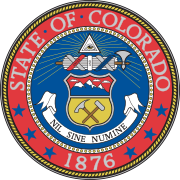This is a list of notable events in the history of LGBT rights that took place in the year 1996.
This is a list of notable events in the history of LGBT rights that took place in the year 1993.
This is a list of notable events in the history of LGBT rights that took place in the year 1992.

Many U.S. states enacted amendments to their state constitutions which prevented the recognition of some or all types of same-sex unions, but all such amendments were struck down by the Supreme Court of the United States on June 26, 2015, in the case of Obergefell v. Hodges. Some amendments prevented a state from legalizing same-sex marriage, civil unions and domestic partnerships, while others banned only same-sex marriage. By May 2012, voters in 30 states had approved such amendments. While the actual text of these amendments still remains written into the various state constitutions, the Obergefell decision has rendered them unenforceable insofar as they prevented same-sex couples from marrying.
This is a list of notable events in the history of LGBT rights that took place in the year 2005.
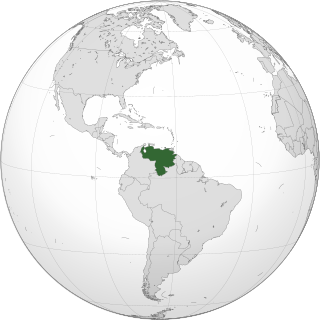
Lesbian, gay, bisexual, and transgender (LGBT) persons in Venezuela may face legal challenges not experienced by non-LGBT residents. Both male and female same-sex sexual activity is legal in Venezuela, but same-sex couples and households headed by same-sex couples are not eligible for the same legal protections available to opposite-sex married couples. Also, same-sex marriage and de facto unions are constituionally banned since 1999.

Rights for lesbian, gay, bisexual, and transgender (LGBT) people in Utah are among the most extensive in the United States. Protective laws have become increasingly enacted since 2014, despite the state's reputation as socially conservative and highly religious. Same-sex marriage has been legal since the state's ban on same-sex marriage was ruled unconstitutional by a federal court on October 6, 2014. In addition, statewide anti-discrimination laws now cover sexual orientation and gender identity in employment and housing. In spite of this, there are still a few differences between treatment of LGBT people and the rest of the population.

Lesbian, gay, bisexual, and transgender (LGBT) persons in Kenya face legal challenges not experienced by non-LGBT residents. Sodomy is a felony per Section 162 of the Kenyan Penal Code, punishable by 14 years' imprisonment, and any sexual practices between males are a felony under section 165 of the same statute, punishable by 5 years' imprisonment. On 24 May 2019, the High Court of Kenya refused an order to declare sections 162 and 165 unconstitutional. The state does not recognise any relationships between persons of the same sex; same-sex marriage is banned under the Kenyan Constitution since 2010. There are no explicit protections against discrimination on the basis of sexual orientation and gender identity. Adoption is prohibited to same-sex couples.

Ballot Measure 2 of 1998 is a ballot measure, since ruled unconstitutional, that added an amendment to the Alaska Constitution that prohibited the recognition of same-sex marriage in Alaska. The Ballot measure was sparked by the lawsuit filed by Jay Brause and Gene Dugan, after the two men were denied a marriage license by the Alaska Bureau of Vital Statistics. In Brause v. Bureau of Vital Statistics, 1998 WL 88743, the Alaska Superior Court ruled that the state needed compelling reason to deny marriage licenses to same-sex couples and ordered a trial on the question. In response, the Alaska Legislature immediately proposed and passed Resolution 42, which became what is now known as Ballot Measure 2. Ballot Measure 2 passed via public referendum on November 3, 1998, with 68% of voters supporting and 32% opposing. The Bause case was dismissed following the passage of the ballot measure.
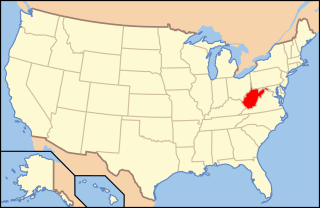
Lesbian, gay, bisexual, and transgender (LGBT) people in the U.S. state of West Virginia face legal challenges not faced by non-LGBT persons, even though homosexual activity and same-sex marriages are legal in West Virginia.
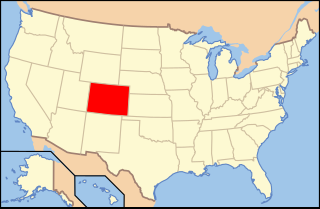
Lesbian, gay, bisexual, and transgender (LGBT) persons in the U.S. state of Colorado live in one of the more socially liberal US states with wider protections for LGBT people. Same-sex sexual activity is legal in Colorado and the state recognizes same-sex marriages.
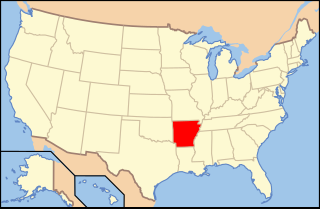
Lesbian, gay, bisexual, and transgender (LGBT) persons in the U.S. state of Arkansas may face some legal challenges not experienced by non-LGBT residents. Same-sex sexual activity is legal in Arkansas. Same-sex marriage in Arkansas became briefly legal through a court ruling on May 9, 2014, subject to court stays and appeals. In June 2015, the U.S. Supreme Court ruled in Obergefell v. Hodges that laws banning same-sex marriage are unconstitutional, legalizing same-sex marriage in the United States nationwide including in Arkansas. Discrimination on the basis of sexual orientation and gender identity is not banned statewide in Arkansas.
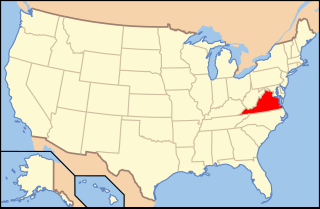
Lesbian, gay, bisexual, and transgender (LGBT) persons in the U.S. Commonwealth of Virginia do not enjoy the same rights that non-LGBT residents do. Same-sex marriage has been legal in Virginia since October 6, 2014, when the U.S. Supreme Court refused to consider an appeal in the case of Bostic v. Rainey. Despite this, there is still only limited rights for LGBT persons in Virginia, since there is no statewide law protecting LGBT persons from discrimination in housing, credit, or any other area, with the exception of statewide employment, the state's hate crime laws do not protect against violence committed based on sexual orientation or gender identity, and Virginia's statute criminalizing sodomy between same-sex and opposite-sex couples, though declared unconstitutional in 2003, was not repealed until 11 years later in 2014.

North Carolina Amendment 1 was a legislatively referred constitutional amendment in North Carolina that amended the North Carolina Constitution to prohibit the state from recognizing or performing same-sex marriages or civil unions. The amendment did not prohibit domestic partnership agreements, but defined male–female marriage as "the only domestic legal union" considered valid or recognized in the state. On May 8, 2012, North Carolina voters approved the amendment, 61% to 39%, with a voter turnout of 35%.
This is a timeline of notable events in the history of lesbian, gay, bisexual and transgender people in South Africa.
This is a list of notable events in the history of LGBT rights that took place in the year 2012.
This page contains a timeline of significant events regarding same-sex marriage in the United States. On June 26, 2015, the landmark US Supreme Court decision in Obergefell v. Hodges effectively ended restrictions on same-sex marriage in the United States.
This is a list of notable events in the history of LGBT rights that took place in the year 2015.
Jean Dubofsky is the first woman to become a Colorado Supreme Court Justice and a former Deputy Attorney General for Colorado. She was the lead attorney in Romer v. Evans, the case that overturned Colorado Amendment 2 at the US Supreme Court, resulting in a landmark ruling for LGBT rights in the United States.
